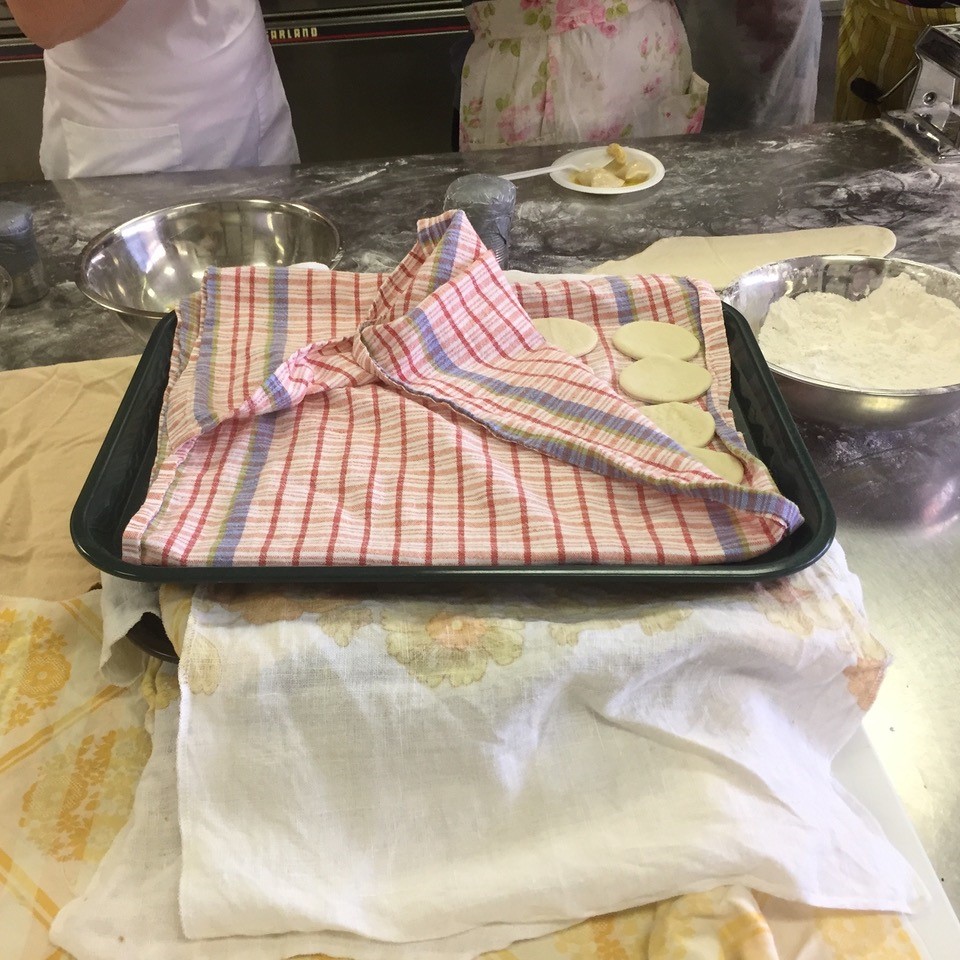
“Pierogi-making at a Polish Canadian cultural centre”—photo by the author.
Written by guest blogger Wiktor Kulinski.
When we think of theatre, from the traditional to the experimental, we imagine staged performances that are composed and exhibited within constraints. But there is also the theatre that is present in everyday life—from embodied practices to social performances, and all the messiness in between—that may not, at first, appear to be theatrical but certainly lie at the peripheries of the performative.
My research interests lie in analyzing “everyday performance,” or what can be understood as the unconscious performances we engage in as we seek to realize the life we have imagined for ourselves. I consider “imagination and creativity as practices that we all engage in every day, that shape and are shaped by social relations, politics and cultural formations that infuse lived experience” (Culhane 3). Whether we strive to be good parents, successful business owners, strong members of our community, or empowered social agents, we are, in essence, performing a role in the present that we imagined, and perhaps rehearsed, in the past.
In a recent contribution to Canadian Theatre Review, I analyze the everyday performance of pierogi-making. I argue that making pierogi is both an act of preservation and an active force that shapes the very heritage from which it draws. Those who claim belonging to the Polish Canadian diaspora (or Polonia) are both performing their belonging to this heritage while simultaneously creating a new imaginary that is infused with aspects of their lived experience. If we consider Polish Canadians as actors and Polonia as their stage, we can begin to unpack how they imagine their diaspora and their role within it, and how they perform that identity through the everyday practices they engage in.
Understanding the everyday as inherently performative offers us a methodological framework to access the imaginative, or those inner dimensions of life that are difficult, and often impossible, to describe in discursive statements. We imagine and perform life at the ground level of the everyday and, in doing so, actively shape/are shaped by this dialectic. When we adopt a performative understanding of life, we have a means to unpack and analyze aspects of our selves that are deeply personal but that we strive to make public.
Works Cited
Elliott, Denielle, and Dara Culhane. “Imagining: An Introduction.” A Different Kind of Ethnography: Imaginative Practices and Creative Methodologies, University of Toronto Press, Toronto, Ontario, 2017, pp. 1–22.
About the Author
A PhD candidate at York University doing research in performance theory and anthropology, Wiktor Kulinski is a Polish Canadian interested in interpreting how members of Polonia in Canada experience, form, and perform their imagined nation-state, particularly in the context of generational succession between third-wave migrants and their children.
His article, “ ‘It Comes with Practice’: Pierogi-Making as Preserving and Imagining Polonia” appears in Canadian Theatre Review Volume 189: Acts of Preservation.
The UTP Journals blog features guest posts from our authors. The opinions expressed in these posts may not necessarily represent those of UTP Journals and their clients.
Comments on this entry are closed.